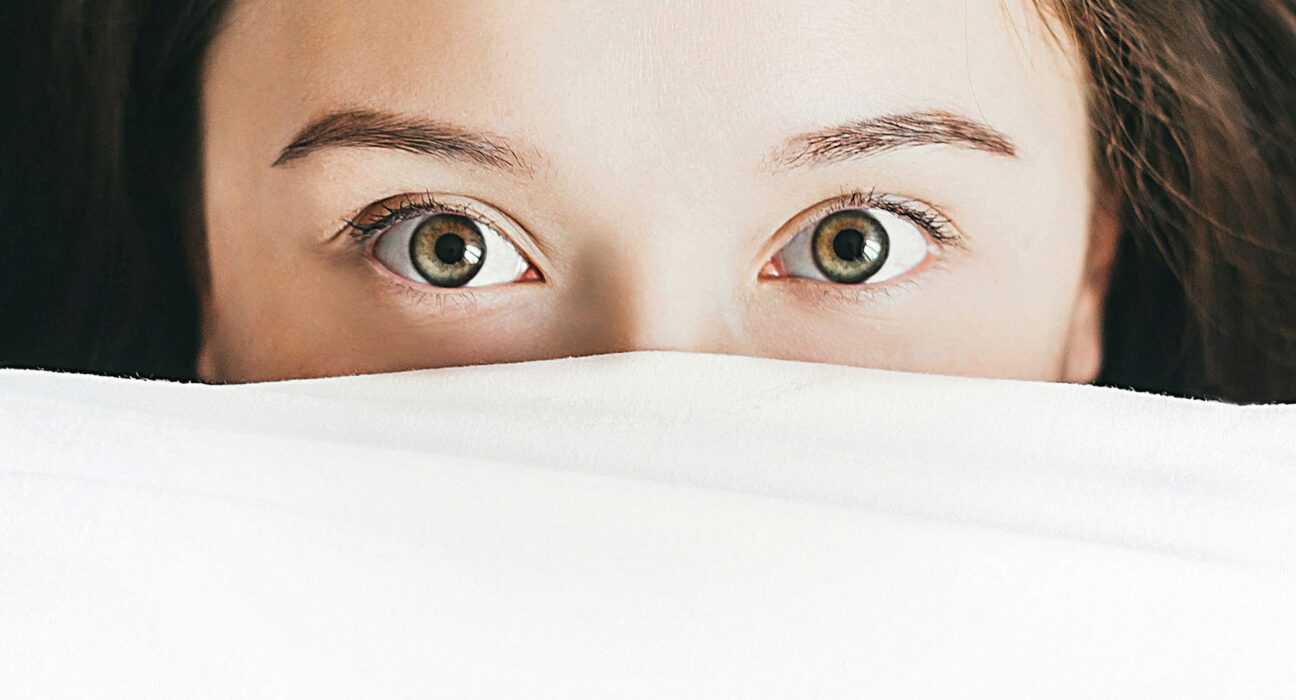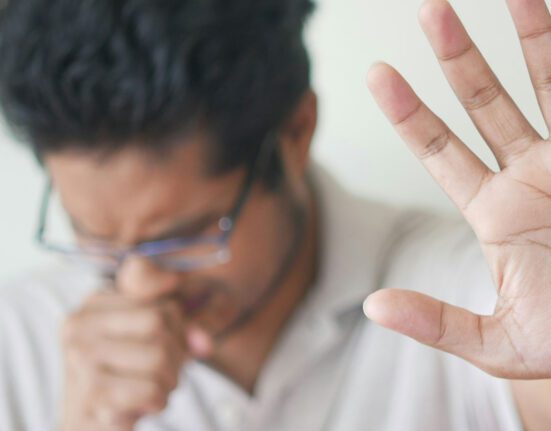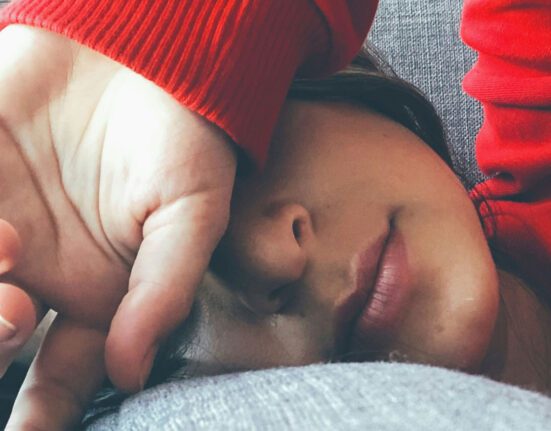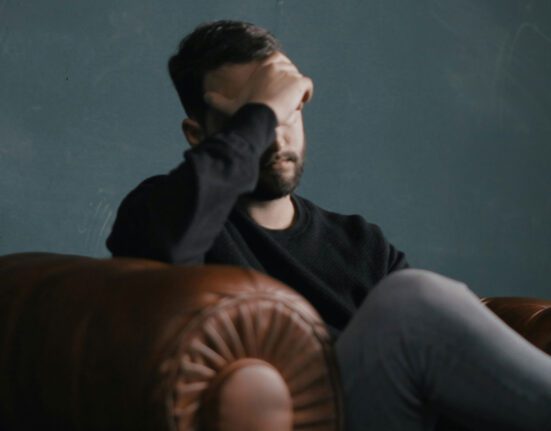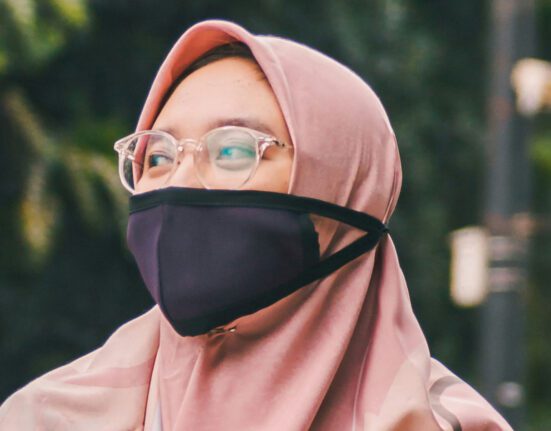Understanding and Managing Sleep Disturbances.
Insomnia. What is it?

What it is:
Insomnia in Long COVID refers to persistent sleep difficulties experienced by individuals recovering from COVID-19. Long COVID, also known as post-acute sequelae of SARS-CoV-2 infection (PASC), encompasses a range of symptoms that persist beyond the acute phase of the illness. Insomnia, a common feature of this syndrome, involves difficulty falling asleep, staying asleep, or experiencing non-restorative sleep.
Typical Symptoms:
Those grappling with insomnia in Long COVID often report difficulty initiating sleep despite feeling fatigued, frequent awakenings throughout the night, and waking up too early in the morning. Additionally, individuals may experience daytime impairments such as fatigue, irritability, difficulty concentrating, and mood disturbances—all of which can significantly impact quality of life and overall well-being.
Both pain and poor sleep can be symptoms of Long COVID. Studies of healthy people who are woken from sleep every hour or so show lack of sleep, makes them more sensitive to pain1. Research is underway to see if poor sleep in Long COVID is associated with pain sensitivity and whether sleep deprivation in Long Haulers affects the nervous system’s ability to suppress pain1.
Who Gets It:
Sleep problems increased significantly for the general population worldwide during the pandemic but insomnia in Long COVID is one of the most common non-neurologic symptoms2. It can affect individuals of any age or background who have experienced COVID-19, regardless of the severity of their initial illness3, examples of high-risk factors for developing insomnia are being hospitalised for COVID-19 and being a black person. For the non-hospitalised Long Hauler, risks are being female, age less than 50 years, higher employment and education status4. Other factors associated with a higher risk of insomnia in Long COVID are pre-existing diseases such as Diabetes Mellitus, mental health disorders such as anxiety, depression and post-traumatic stress disorder (PTSD)5,6. Poor mental health is known to contribute to poor sleep.
Possible Causes of Insomnia in Long COVID:
Viral Persistence, Pro-inflammatory cytokines leading to neuronflammation, Autoimmunity, Mitochondrial dysfunction1,6,7.
Key Points:
- Insomnia is a prevalent symptom of Long COVID, persisting beyond the acute phase of the illness.
- Sleep disturbances can significantly impact daytime functioning and quality of life.
- Individuals with pre-existing sleep disorders or severe COVID-19 may be more susceptible to insomnia in Long COVID.
- Psychological factors and ongoing physical symptoms can contribute to the development and persistence of sleep difficulties.
Insomnia in Long COVID is a complex symptom that can significantly impact the recovery process. By understanding its typical symptoms, risk factors, and management strategies, individuals can take proactive steps to improve their sleep and overall well-being during the post-COVID recovery period.
Long Covid The Answers
Relief:
- Establish a Consistent Sleep Schedule: Maintain regular sleep and wake times, even on weekends, to regulate your body’s internal clock.
- Create a Relaxing Bedtime Routine: Engage in calming activities such as reading, meditation, or gentle stretching before bed to signal to your body that it’s time to wind down.
- Optimize Your Sleep Environment: Ensure your bedroom is conducive to sleep by keeping it cool, dark, and quiet. Invest in a comfortable mattress and pillows to promote relaxation.
- Limit Stimulants and Electronics: Avoid caffeine and electronics, such as smartphones and computers, before bedtime as they can interfere with your ability to fall asleep.
- Treat the mental health disorder that accompanies insomnia e.g. depression, anxiety, post traumatic stress disorder. You will likely need professional help for this.
- Seek Professional Help: If insomnia persists despite these strategies, consult with a healthcare provider or sleep specialist. Cognitive-behavioral therapy for insomnia (CBT-I) and pharmacological interventions may be recommended to address persistent sleep difficulties.
Are there resources long COVID patients can use to manage symptoms themselves?
Yes. Dr. Melanie Dae, a senior instructor of psychology at CU, recommends several apps for help with sleep and relaxation techniques. Some examples: include
• CBT-i Coach from the Department of Veterans Affairs
• Calm
• BetterSleep (formerly Relax Melodies)
• Breathe2Relax
• Tactical Breather
• Stop Breathe Think
Credible Sources of Information/References
- 1. “Understanding Sleep Problems and Long COVID”- National Institutes of Health COVID-19 Research September 2023.
- 2. Perez Giraldo GS, Ali ST, Kang AK, Patel TR, Budhiraja S, Gaelen JI, Lank GK, Clark JR, Mukherjee S, Singer T, Venkatesh A. Neurologic Manifestations of Long COVID Differ Based on Acute COVID‐19 Severity. Annals of neurology. 2023 Jul;94(1):146-59.
- 3. Merikanto I, Dauvilliers Y, Chung F, Wing YK, De Gennaro L, Holzinger B, Bjorvatn B, Morin CM, Penzel T, Benedict C, Koscec Bjelajac A. Sleep symptoms are essential features of long‐COVID–Comparing healthy controls with COVID‐19 cases of different severity in the international COVID sleep study (ICOSS‐II). Journal of sleep research. 2023 Feb;32(1):e13754.
- 4. Hoang HT, Yeung WF, Truong QT, Bui AT, Bui QV, Quach LH. Sleep quality among non-hospitalized COVID-19 survivors: a national cross-sectional study. Frontiers in Public Health. 2024 Feb 5;11:1281012.
- 5. Pena-Orbea C, Lapin B, Li Y, Englund K, Heinzinger C, Foldvary-Schaefer N, Mehra R. Sleep disturbance severity and correlates in post-acute sequelae of COVID-19 (PASC). Journal of General Internal Medicine. 2023 Jun;38(8):2015-7.
- 6. Tedjasukmana R, Budikayanti A, Islamiyah WR, Witjaksono AM, Hakim M. Sleep disturbance in post COVID-19 conditions: Prevalence and quality of life. Frontiers in neurology. 2023 Jan 9;13:1095606.
- 7. Seighali N, Abdollahi A, Shafiee A, Amini MJ, Teymouri Athar MM, Safari O, Faghfouri P, Eskandari A, Rostaii O, Salehi AH, Soltani H. The global prevalence of depression, anxiety, and sleep disorder among patients coping with Post COVID-19 syndrome (long COVID): a systematic review and meta-analysis. BMC psychiatry. 2024 Feb 6;24(1):105.


